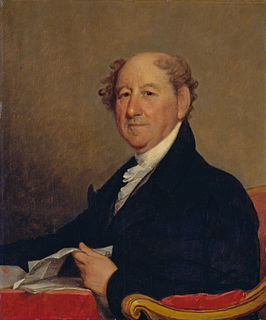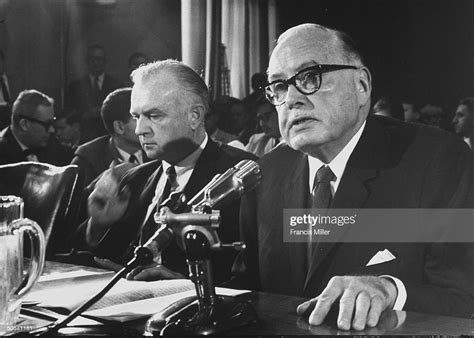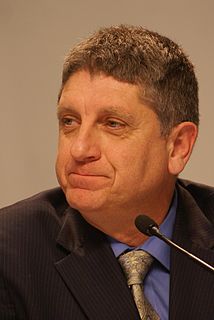A Quote by Rufus King
In our laws...by the oath which they prescribe, we appeal to the Supreme Being so to deal with us hereafter as we observe the obligation of our oaths. The Pagan world...are without the mighty influence of this principle which is proclaimed in the Christian system.
Related Quotes
When we assume God to be a guiding principle well, sure enough, a god is usually characteristic of a certain system of thought or morality. For instance, take the Christian God, the summum bonum: God is love, love being the highest moral principle; and God is spirit, the spirit being the supreme idea of meaning. All our Christian moral concepts derive from such assumptions, and the supreme essence of all of them is what we call God.
Let it simply be asked where is the security for property, for reputation, for life, if the sense of religious obligation deserts the oaths, which are the instruments of investigation in the Courts of Justice? And let us with caution indulge the opposition, that morality can be maintained without religion. Whatever may be conceded to the influence of refined education on minds of peculiar structure, reason and experience both forbid us to expect that National morality can prevail in exclusion of religious principle.
The supreme adventure is being born. There we do walk suddenly into a splendid and startling trap... When we step into the family, by the act of being born, we do step into a world which is incalculable, into a world which has its own strange laws, into a world which could do without us, into a world we have not made. In other words, when we step into the family we step into a fairy-tale.
If these precedents are to stand unimpeached, and to provide sanctions for the continued conduct of America affairs-the Constitution may be nullified by the President and officers who have taken the oath and are under moral obligation to uphold it....they may substitute personal and arbitrary government-the first principle of the totalitarian system against which it has been alleged that World War II was waged-while giving lip service to the principle of constitutional government.
You better believe that I want to build a Christian nation, because the only option is a pagan nation. Not that the government can make someone a Christian by decree. A Christian nation would be defined as We acknowledge God in our body politic, in our communities, that the God of the Bible is our God, and, we acknowledge that His law is supreme.
Our patriotism comes straight from the Romans. This is why French children are encouraged to seek inspiration for it in Corneille. It is a pagan virtue, if these two words are compatible. The word pagan, when applied to Rome, early possesses the significance charged with horror which the early Christian controversialists gave it. The Romans really were an atheistic and idolatrous people; not idolatrous with regard to images made of stone or bronze, but idolatrous with regard to themselves. It is this idolatry of self which they have bequeathed to us in the form of patriotism.
A large part of our attitude toward things is conditioned by opinions and emotions which we unconsciously absorb as children from our environment. In other words, it is tradition—besides inherited aptitudes and qualities—which makes us what we are. We but rarely reflect how relatively small as compared with the powerful influence of tradition is the influence of our conscious thought upon our conduct and convictions.
It is not the multitude of hard duties, it is not the constraint and contention that advance us in our Christian course. On the contrary, it is the yielding of our wills without restriction and without choice to tread cheerfully every day in the path in which Providence leads us. It is to seek nothing, to be discouraged by nothing, to see our duty in the present moment, and to trust all else without reserve to the will and power of God.




































